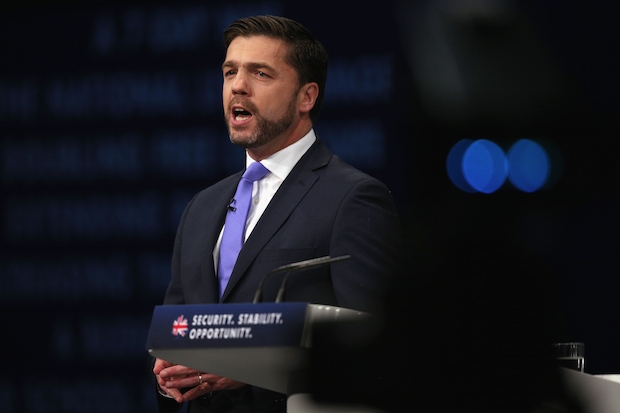What do politicians find it harder to admit to doing in Britain today: smoking weed or praying? Welsh Secretary Stephen Crabb thinks it’s the latter, and that this is part of a ‘creeping intolerance’ in Britain that makes our society less able to resist religious extremists.
In a lecture last night to the Conservative Christian Fellowship, Crabb argued that ‘Britain in 2015 is… increasingly characterised I believe by a creeping intolerance towards Christianity, and towards religion more generally, which we should be deeply concerned about’. He believes that the marginalisation of religious faith and discussion ‘risks pushing more young Muslims into the arms of Isil’ because it delegitimises their faith.
He also admitted finding it easier not to talk about his own faith at all as a politician, and worrying that ‘I doubt whether we will ever see again a British Prime Minister who can talk openly about the times when they might pray to God’. He said:
‘So here we are in 2015, in an age when it is easier for a politician to admit to smoking weed or watching porn, than it is to admit that they might take prayer seriously in their daily life.’
Crabb pointed to the open ridicule that politicians such as Tim Farron and Tony Blair invited for saying that they prayed. He also said the decision by major cinema chains to refuse to screen a Church of England advert about the Lord’s Prayer was ‘an act of enormous ignorance and intolerance’.
Those complaints are hardly unusual from Christians in British life, but what’s striking about this is not that Crabb is asking for special treatment for the religion that he adheres to, but merely freedom for all to talk openly about their beliefs without a fear of offence limiting free speech. He worries that the cinema ban and the suspicion directed at Farron and Blair makes life more difficult for Muslims, especially those Muslims who, he said, ‘know that they face a battle to save their young people from the poison of extremism’.
Fear of offence also, as he argues, limits proper dissection of whether someone is right to hold beliefs, not just a young person tempted by the poison of Islamist extremism, but also someone who hasn’t fully thought through their Christian beliefs, or indeed someone who espouses ‘hard-edged secularism’.
But how best to counter that ‘illiberal’ culture? Well, it probably needs more politicians to take the plunge and admit to praying, just as others admit to watching porn and smoking weed without the ceiling falling down on them. But it also requires the support of those who fundamentally disagree with what other religious groups believe but who think that liberty and true tolerance are too important to be allowed to wither.







Comments